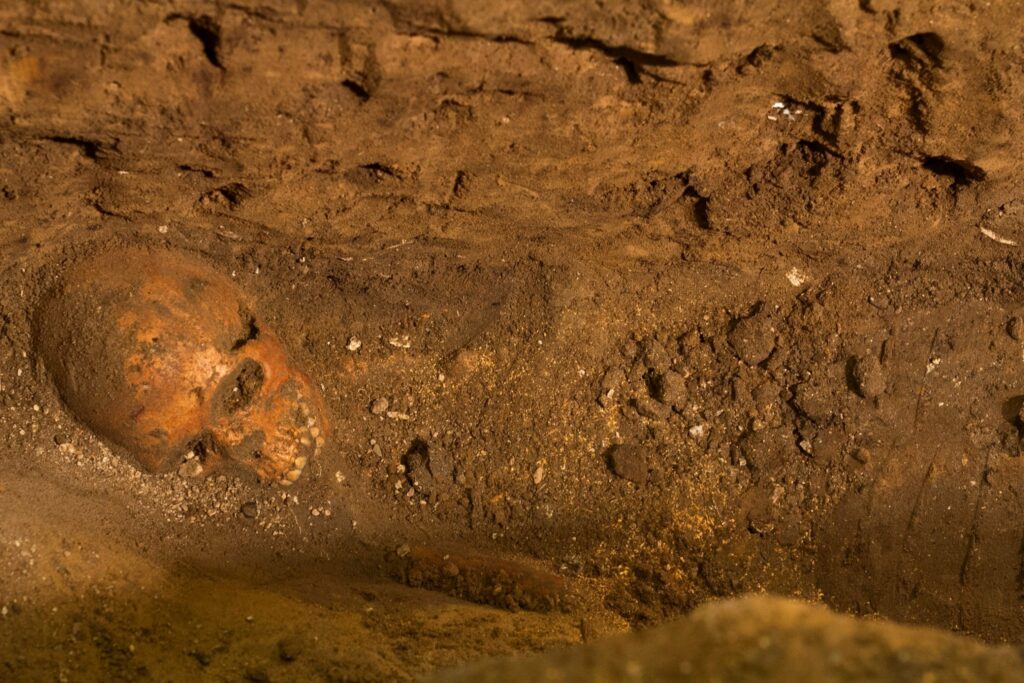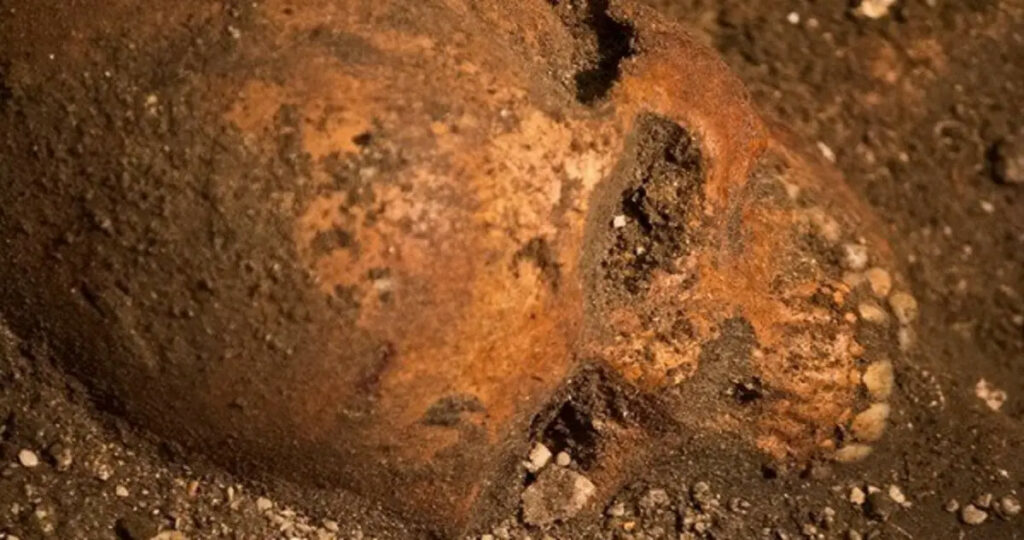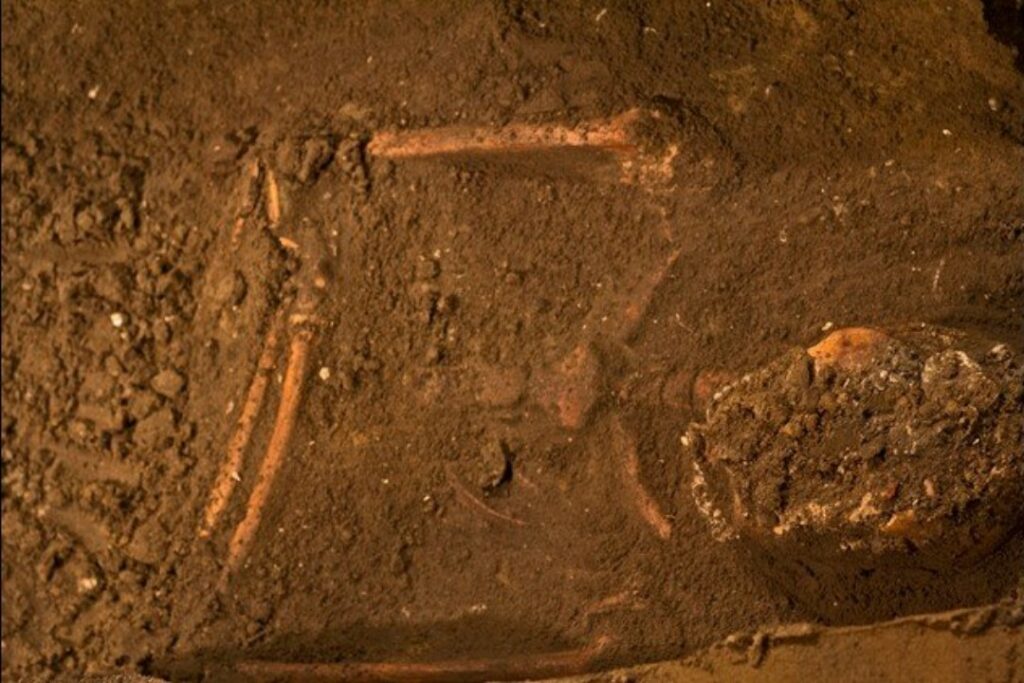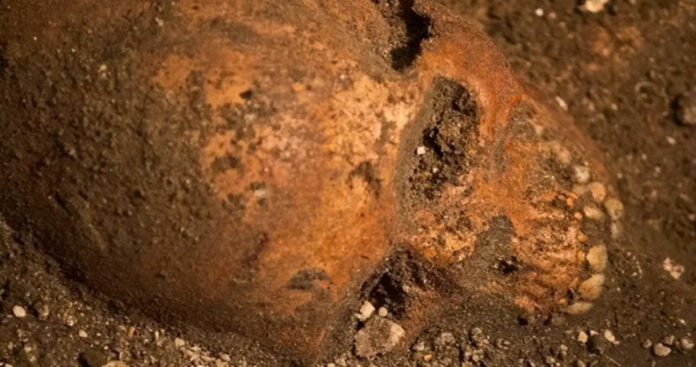A Remarkable Archaeological Discovery

In an extraordinary archaeological find, skeletons uncovered beneath a wine shop in St. Augustine, Florida, are believed to belong to some of America’s earliest colonists. This discovery offers a rare insight into the lives of the first European settlers in North America and underscores the rich history of the nation’s oldest city.
Discovery of the Skeletons

Historians and archaeologists have recently discovered several small children’s bones buried under a wine shop in St. Augustine. To their surprise, this site revealed an ancient graveyard. Among the seven individuals unearthed were three children, including the remains of a young white European woman. Nearby pottery fragments indicate that these individuals lived between 1572 and 1586.
Historical Significance

Carl Halbirt, the city archaeologist of St. Augustine, emphasized the importance of these findings. “What you’re dealing with is people who made St. Augustine what it is. You’re in total awe. You want to treat everything with respect, and we are,” he said. These remains likely belong to some of the first settlers in North America, providing invaluable insights into the early colonial period.
The Impact of Hurricane Matthew
The excavation was made possible due to the damage caused by Hurricane Matthew. The flooding from the hurricane convinced the building’s owner to replace the wooden floor, allowing archaeologists to dig underneath the structure. The building, constructed in 1888, had untouched soil beneath it, creating a virtual time capsule that preserved these ancient remains.
Connection to the Ancient Church

The wine shop is built on the site of the ancient Church of Nuestra Señora de la Remedios. According to architectural historian Ellsbeth Gordon, mission churches in Florida buried everyone in the church floor, which was considered consecrated ground. The church had a tumultuous history, being burned down by Sir Francis Drake in 1586, destroyed by a hurricane in 1599, and burned again by the British in 1702. Despite these destructions, the church served as the main meeting point for a colony established 55 years before the Pilgrims landed at Plymouth Rock.
Preservation of the Remains

While the archaeologists plan to move the bones found outside the wine shop to a nearby cemetery, the skeletons discovered inside the shop will remain undisturbed. These bones have lain in their resting place for over 400 years and will continue to be preserved as a testament to the early history of St. Augustine.
Conclusion
The discovery of these ancient skeletons under a Florida wine shop has provided a fascinating look into America’s colonial past. These findings not only enhance our understanding of the early settlers but also underscore the historical significance of St. Augustine. As researchers continue to study these remains, they will undoubtedly uncover more stories of the individuals who played a crucial role in shaping the history of the United States.

